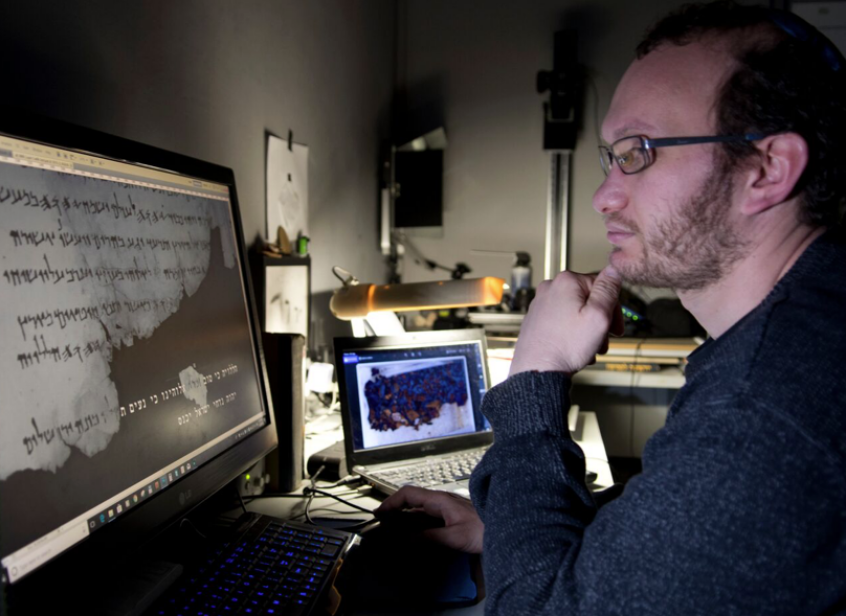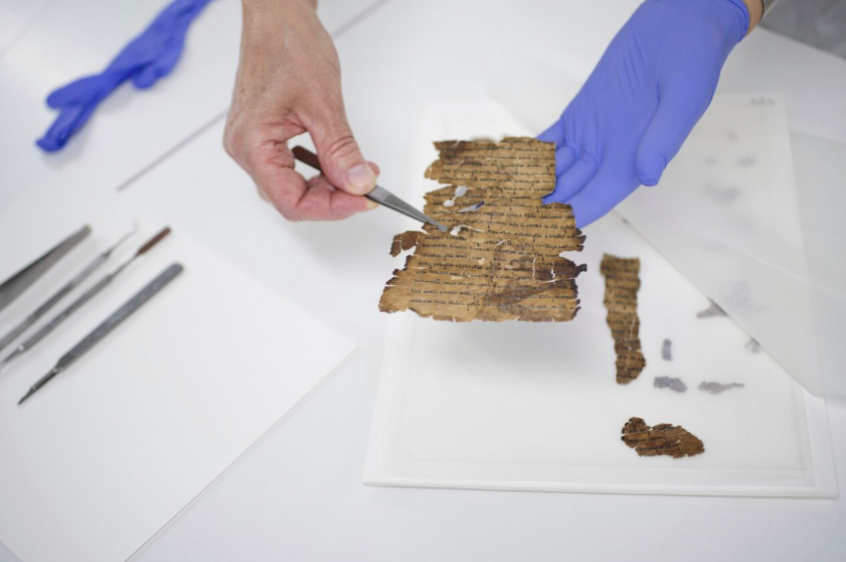Previously unknown writings on some of the Dead Sea Scrolls have been discovered and deciphered by academics using advanced imaging technology.
A researcher for the Israel Antiquities Authority (IAA) was able to read letters that are invisible to the naked eye as part of a project to digitise the scrolls, discovered during the 1950s in caves at Qumran.

Tens of thousands of parchment and papyrus fragments were discovered alongside whole manuscripts. Some of them have never been sorted or deciphered, but examinations have now revealed that the new imagining technology – originally developed for NASA – can identify script on some fragments.
The identification of new letters and words provides new data for the study of the scrolls and one of the fragments may even indicate the existence of a hitherto unknown manuscript, according to the IAA.
The new script was discovered by Oren Ableman, a scroll researcher at the Dead Sea Scrolls Unit of the IAA and a PhD student at the Hebrew University of Jerusalem. Abelman examined a few dozen fragments that were discovered in Cave 11 near Qumran and was excited to discover traces of ink on many fragments that appeared blank to the naked eye.

After a detailed study made public last night at an event at the university, Oren successfully deciphered the script on many of the fragments and even identified the manuscripts some of the new fragments probably belonged to.
Although only a few letters survived in these small fragments, sometimes this was enough to reconstruct the text.
New fragments were discovered and identified from the Books of Deuteronomy, Leviticus and Jubilees belonging to scrolls scholars were already familiar with.
Among the finds of particular interest is a fragment belonging to the Great Psalms Scroll preserving part of the beginning of Psalm 147:1. The new fragment indicates that the text of Psalm 147:1 in this manuscript was slightly shorter than the Hebrew text commonly used nowadays.
Another fragment contains letters written in the ancient Hebrew script (paleo-Hebrew). This fragment could not be attributed to any one of the known manuscripts. This raises the possibility that it belonged to a still unknown manuscript.













